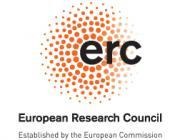"Apartheid—The Global Itinerary: South African Cultural Formations in
Transnational Circulation, 1948-1990", funded by the European Research Council
(ERC), under the direction of PI Louise Bethlehem, sought to trace the global diffusion of
apartheid-era expressive culture, whether textual, musical or visual, in a Cold War setting.
The project adopted an unusual point of departure, treating apartheid as an apparatus of
transnational cultural production.
During its time in power, the apartheid government exiled political activists, intellectuals,
writers, photographers and musicians. Texts depicting racial oppression circulated within
transnational networks. Images were disseminated by the mass media. Sounds traveled,
whether as the radio broadcasts of displaced writers or as the jazz performances of exiled
musicians. Cultural mediation was integral to these outward itineraries.
Through the lens of cultures of resistance to apartheid, Professor Bethlehem and her
research team produced detailed accounts of how South African political dissidents,
writers, musicians, artists and photographers staged interventions that foregrounded
questions of social justice and racial equality for—and within—other global
constituencies. Explore our findings, many of which are available for free download, here.


